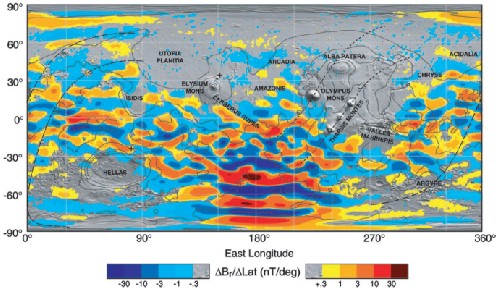 It’s a curious state of 21st century affairs when a person’s suitability for leading the world’s most powerful nation hinges more on whether they mouth the right Christian platitudes than on whether they understand the difference between a Bronze age creation myth and the explanatory framework of evolution. Like it or not, religion is an important part of American cultural life, so it is no surprise that a candidate’s religious attitudes are placed under scrutiny (if only to check that they understand what “separation of church and state” actually means). But it is a little odd that, in a country which generates much of its wealth through technical innovation, in a world where issues such as climate change and the uses (and possible abuses) of biotechnology loom ever larger in the public consciousness, a candidate’s scientific literacy, or lack thereof, doesn’t seem to merit even a cursory examination.
It’s a curious state of 21st century affairs when a person’s suitability for leading the world’s most powerful nation hinges more on whether they mouth the right Christian platitudes than on whether they understand the difference between a Bronze age creation myth and the explanatory framework of evolution. Like it or not, religion is an important part of American cultural life, so it is no surprise that a candidate’s religious attitudes are placed under scrutiny (if only to check that they understand what “separation of church and state” actually means). But it is a little odd that, in a country which generates much of its wealth through technical innovation, in a world where issues such as climate change and the uses (and possible abuses) of biotechnology loom ever larger in the public consciousness, a candidate’s scientific literacy, or lack thereof, doesn’t seem to merit even a cursory examination.
An initative spearheaded by a group that includes my fellow Sciblings Chris and Sheril aims to correct this imbalance, by campaigning for a presidential debate specifically focused on scientific issues:
Given the many urgent scientific and technological challenges facing America and the rest of the world, the increasing need for accurate scientific information in political decision making, and the vital role scientific innovation plays in spurring economic growth and competitiveness, we call for a public debate in which the U.S. presidential candidates share their views on the issues of The Environment, Health and Medicine, and Science and Technology Policy.
While I’m not a US citizen, I live in the world where the attitudes and actions of the American president affect me nonetheless; and I think it would be a very good thing if presidential candidates’ attitudes towards science were made an important part of electoral deliberations. We can’t expect every politician to be a polymath, but we should certainly expect them to have a basic grasp of, and respect for, how science works. They should understand that an administration where reality is trumped by ideology, where inconvenient research is suppressed or ignored and actual scientists are snubbed in favour of science-fiction authors and lobbyists who tell you want you want to hear, is a bad thing. They should realise that basic research is the foundation on which applied research, with all those lovely spin-off technologies and patents, is built, and not an optional extra.
Of course, it’s one thing to have a debate about science policy; it’s quite another for that debate to actually influence the opinions of the average voter. But perhaps if people start seeing their potential leaders actually taking science seriously, it might help to persuade them that maybe they should, too.





Nice plan for content warnings on Mastodon and the Fediverse. Now you need a Mastodon/Fediverse button on this blog.